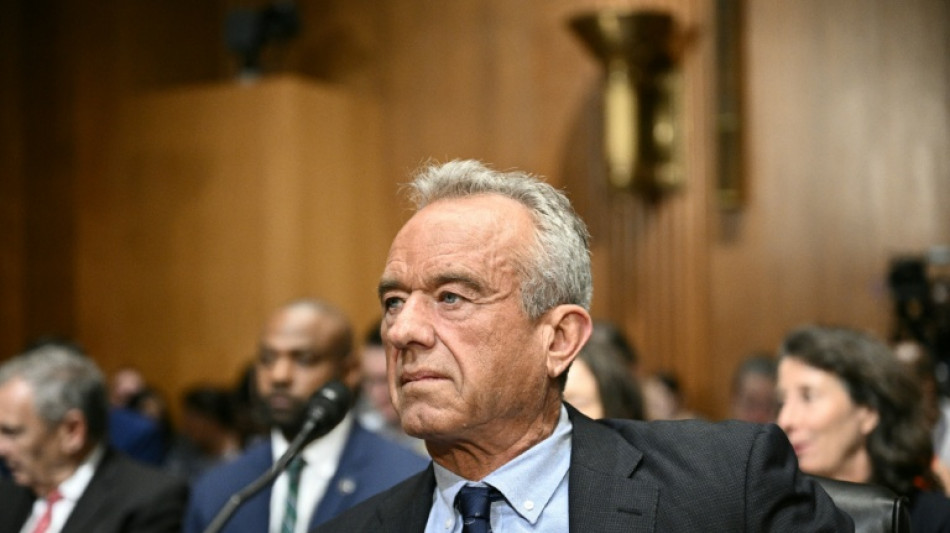

US unveils new health plan avoiding curbs on junk food, pesticides
US Health Secretary Robert F. Kennedy Jr. on Tuesday unveiled the Trump administration's long-awaited plan to tackle chronic disease, calling for better nutrition, tighter scrutiny of medical advertising, and even a new push to boost fertility.
Conspicuously absent, however, were proposals to directly restrict ultra-processed foods or pesticides -- long priorities of Kennedy's Make America Healthy Again (MAHA) movement -- omissions viewed as wins for the food and agriculture industries.
"The administration is trying to have it both ways," Scott Farber, vice president of the nonprofit Environmental Working Group, told AFP, criticizing what he called the vagueness of the "Make Our Children Healthy Again" strategy, a follow-up to an initial assessment published this spring.
"In May, they described a hellscape of junk food and toxic exposures that put all our children at risk. In September, they are calling for more studies and plans and proposals."
The new 20-page report highlights many of Kennedy's signature causes: reviewing fluoride in drinking water, revisiting childhood vaccine schedules and expanding parental opt-outs, and raising doubts about antidepressants.
Many of these positions sit well outside mainstream medicine, particularly on vaccines.
Other eye-catching ideas include a MAHA fertility education campaign -- reflecting right-wing anxieties over declining birth rates -- and a call to probe "electromagnetic radiation," apparently a reference to cellphone use, though it is not spelled out.
The first report was widely ridiculed after it was found to contain numerous fabricated citations, apparently from using AI tools.
- Thin on specifics -
The new paper avoids that pitfall by omitting citations altogether. But critics said it was largely thin on specifics, even for areas that enjoy broad consensus, such as tackling America's junk-food addiction.
One section calls for a government-wide definition of ultra-processed foods, without saying what should follow. "This is such an opportunity. I sure wish they had taken it," Marion Nestle, professor emeritus of nutrition at New York University, told AFP.
Likewise, it seeks to increase oversight for violations of drug advertising laws -- though in the past Kennedy had called for an outright ban and some had hoped the administration would push for such a regulation.
On the use of pesticides, the report on the one hand evokes the possible use of "precision technology" to "decrease pesticide volumes" — while elsewhere it calls for deregulation to help bring "chemical and biologic products to protect against weeds, pests, and disease" to market faster.
It comes as President Donald Trump's Environmental Protection Agency is proposing to bring a new wave of pesticides to market despite experts warning the proposed chemicals constitute harmful so-called "forever chemicals."
Similarly, even as the MAHA report urges higher birth rates, the EPA's weakening of air-pollution standards risks undermining fertility, given the well-established harms of contaminants to sperm and egg health.
"This is taking gaslighting to a new level," said Farber.
F.Gentile--GdR



